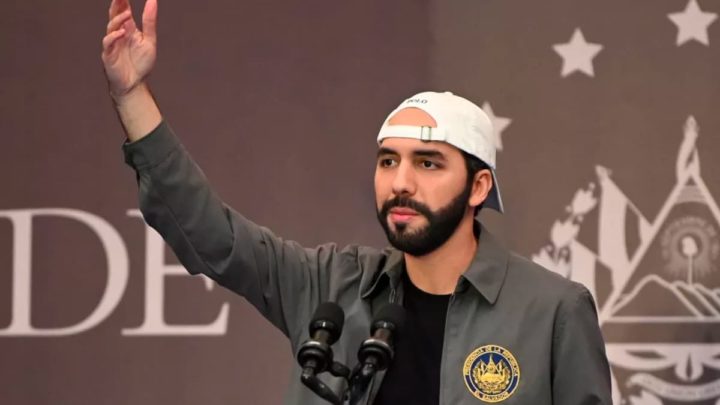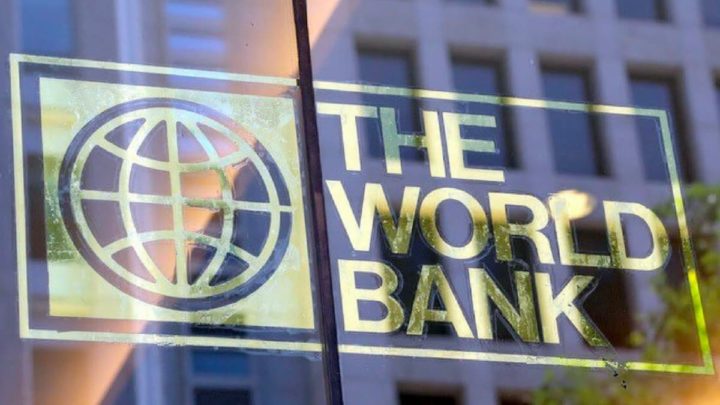last week , The government of El Salvador has passed a law To accept bitcoin as a legal tender alongside the US dollar. The country receives 6 billion dollars in shipments per year – a quarter of its GDP – and we hope that lower bitcoin transaction costs will increase this amount by a few percentage points.
In this initiative, El Salvador will use volcanoes to mine bitcoin in a sustainable way. However, the World Bank does not approve of Bitcoin and refuses to help with the scheme.
pub
Bitcoin in El Salvador has no World Bank support
If ever there was a critical moment for cryptocurrency, this is it. After the astrological assessment, the economic situation and took some positions They leave doubts and doubts About the future of cryptocurrency.
Although some countries are "punished" Those who bet on this currency, and others, such as El Salvador, issued legal tender next to the dollar.
The change was initially proposed by the head of state, Najib Bukil, who said he hoped that in addition to facilitating lower transfer rates, the bitcoin scheme would attract investment and provide a way to save for the population, 70% of whom did not. They are deposited in banks - what Bukele didn't say, but what Bloomberg said mentioned, is that he and members of his political party have owned bitcoin for years.
However, adding cryptocurrency to the list is not an easy task, and the new law gives the country only three months to roll out the plan at the national level. No country has used bitcoin or any other cryptocurrency as legal tender, and challenges abound.
Environmental issues and lack of transparency are hurting cryptocurrencies
To address these concerns, El Salvador turned to the World Bank and the International Monetary Fund for assistance; The latter is currently considering a request for 1.3 billion US dollars for state funding.
The International Monetary Fund has left a cautious assessment of the movement of Bitcoin in El Salvador.
The adoption of bitcoin as a legal currency raises a number of macroeconomic, financial and legal issues that require very careful consideration.
International Monetary Fund spokesman, Jerry Rice, said in a conference Press release.
However, the World Bank was less generous and stated that Bitcoin, along with other cryptocurrencies, is not on the horizon for this entity.
We are committed to helping El Salvador in a number of ways, including monetary and regulatory transparency processes. Although the government has approached us for help with bitcoin, this is not something the World Bank can support, given the environmental and transparency shortcomings.
A World Bank spokesperson said البنك Reuters.
In other words, the power requirements of cryptocurrency mining and its ease of use Use it for money launderingTax evasion and other illegal cryptocurrency schemes are "outlawed" in the eyes of the World Bank.
Volatile currency still scares regulators
There are other reasons why the World Bank and IMF are skeptical about El Salvador's offer to use Bitcoin. The technical challenges are not insignificant. In fact, the price of bitcoin against the dollar has been very volatile.
How do you determine the price of a dozen eggs in bitcoin if the price of bitcoin fluctuates by 10% in a few hours? Perhaps there is no answer. In “Bitcoin Beach” in Zonte, El Salvador, where Bitcoin use is relatively widespread, merchants still seek their products in dollars and the exchange rate is set at the time of purchase.
This approach appears to be what the government of El Salvador is taking, but it treats bitcoin more as a token than a real currency. Also, bitcoin transactions can be noticeably slow. Each one must be verified by miners, miners only process blocks of transactions, not individual transactions.
Thus, in order to confirm the bitcoin purchase, both parties have to wait for the block to complete. Currently, the block takes about 10 minutes to add to the Blockchain.
Finally, while bitcoin transactions can be cheap or even free, they tend to have fees associated with them. The fee is not mandatory, but it encourages miners to verify the transaction. Also, if Salvadorans want to exchange their bitcoin for dollars, there are fees associated with that as well. So, in the end, the system will not be free.

“Wannabe internet buff. Future teen idol. Hardcore zombie guru. Gamer. Avid creator. Entrepreneur. Bacon ninja.”




